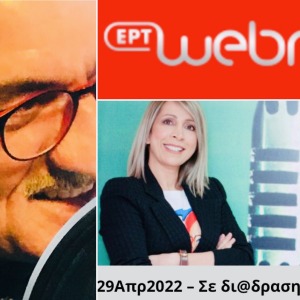In 1989, I was employed in private, non-formal education, setting up the first Oxford University office for exams and certifications in Thessaloniki, which then evolved into educational publishing. During those years, English language & culture graduates waited in line for more than 10 years (before the Personnel Selection Council, ASEP, was founded), to become appointed as public teachers in junior-high or high schools. In the meantime, they were employed as teachers in some of the thousands of foreign language schools that were flourishing at the time, and which, in my personal experience, designated Greece as the leading market for English Universities and publishers internationally.
As years went by, competition drove teachers to pursue ongoing training in new methodologies and technologies. During the 1990s, the country’s two English Language University departments acquired international status, due to their content, standards, expertise and teaching personnel. International linguistic conferences were organized in Greece, and the most renowned authors in the world based their offices and practices in Greece (Luke Prodromou, Jeanne Perrett, Malcolm Mann and Steve Taylore-Knowles). Great personalities, such as Leo Jones, Penny Ur and Herbert Puchta, would spend weeks here, training thousands of English teachers for free or at minimum cost (thanks to publishers’ sponsorships).
As these teachers began to be appointed to public schools, and were quickly replaced by younger ones in private language schools, they faced the reality that public school education was substantially out of date; so slowly and steadily, they started to put pressure on school counselors for seminars, funds and research. Suddenly, the public school English course became enriched with international books at first, then with flashcards, teaching aids, audio and digital material, and finally with interactive boards, courtesy of school councils.
The secret to this small success story was not the mere existence of private foreign language education, but rather that the content and curriculum of this type of education was not controlled by some institution, ministry or state, and was ultimately judged by its results during the evaluation of exam candidates. In other words, healthy competition prevailed in educational methods, quality and content, and within almost a decade, standards were raised.
In formal education, however, things are exactly the opposite, as Greek private schools are, in the best case scenario, “public schools’ elite little brothers”. The reasons behind this stagnation lie in one single fact; educational curricula content and material is strictly defined and confined by the national education system, both in terms of legislation and law.



